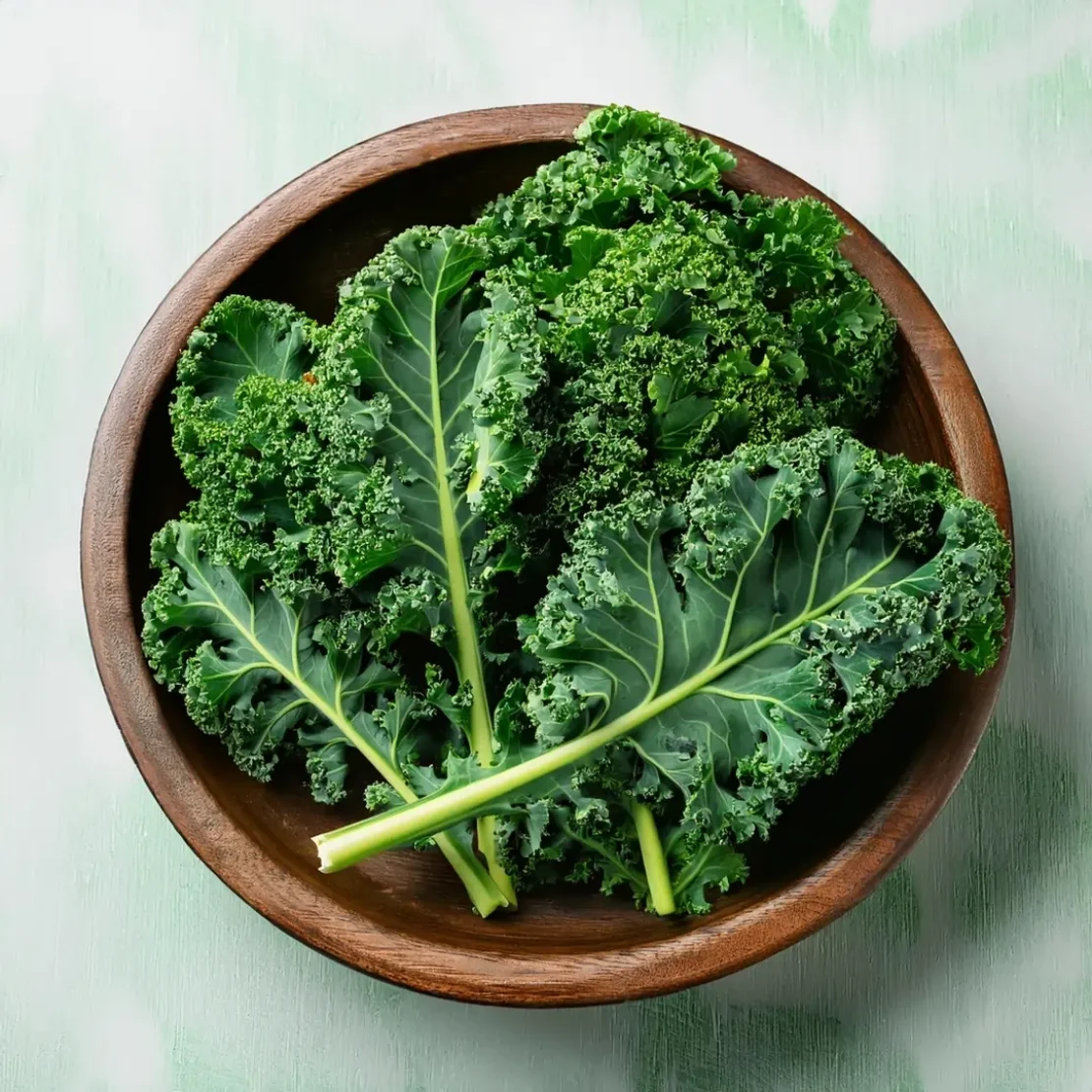Kale has gained popularity as a nutritional powerhouse, and for good reason. This leafy green vegetable is packed with essential vitamins, minerals, and antioxidants that can support overall health. From heart health to bone strength, kale offers a wide range of benefits that make it a must-have in your diet. In this article, we’ll delve into the many reasons why kale is considered a superfood, how it supports various aspects of health, and simple ways to incorporate it into your meals.
Health Benefits of Including Kale in Your Diet
Kale is often hailed as a superfood because of its dense nutrient profile. Consuming kale regularly can contribute to improved health in several ways:
1. Rich in Antioxidants
Kale is loaded with powerful antioxidants such as quercetin and kaempferol, which help neutralize free radicals in the body. Free radicals can cause oxidative stress, leading to chronic diseases like cancer and heart disease. By including kale in your diet, you can help protect your cells from damage and reduce the risk of these conditions.
2. Supports Heart Health
Kale is an excellent source of potassium, which plays a crucial role in heart health. Potassium helps regulate blood pressure by counteracting the effects of sodium in the body. Additionally, the fiber content in kale can help lower cholesterol levels, further reducing the risk of heart disease.
3. Boosts Immunity
Kale is rich in vitamin C, an essential nutrient for a healthy immune system. Vitamin C helps stimulate the production of white blood cells, which are vital for fighting off infections. Including kale in your diet can strengthen your immune defenses, helping you stay healthy year-round.
Nutritional Value of Kale and Its Health Advantages
Kale is low in calories but incredibly high in nutrients. A single cup of raw kale (about 67 grams) provides:
- Vitamin A: 206% of the Daily Value (DV)
- Vitamin K: 684% of the DV
- Vitamin C: 134% of the DV
- Vitamin B6: 9% of the DV
- Manganese: 26% of the DV
- Calcium: 9% of the DV
- Copper: 10% of the DV
- Potassium: 9% of the DV
- Magnesium: 6% of the DV
This impressive nutrient profile makes kale one of the most nutrient-dense foods available.
4. Aids in Digestion
Kale is high in fiber, which is essential for digestive health. Fiber helps keep your digestive system running smoothly by promoting regular bowel movements and preventing constipation. Additionally, fiber can feed the beneficial bacteria in your gut, promoting a healthy gut microbiome.
5. Supports Bone Health
Kale is an excellent source of calcium and vitamin K, both of which are critical for bone health. Calcium is a key component of bone tissue, while vitamin K helps regulate calcium in the body and supports bone mineralization. Including kale in your diet can help maintain strong and healthy bones.
How Kale Supports Heart Health and Immunity
As mentioned earlier, kale is a heart-healthy food due to its potassium and fiber content. But its benefits for heart health don’t stop there. Kale also contains omega-3 fatty acids, which are known to reduce inflammation and lower the risk of cardiovascular disease. The presence of these healthy fats, combined with the antioxidant properties of kale, makes it a powerful ally in maintaining a healthy heart.
Moreover, kale’s high vitamin C content is not only beneficial for immunity but also for skin health. Vitamin C is crucial for collagen synthesis, which helps maintain skin elasticity and reduce wrinkles.
Easy Ways to Incorporate Kale into Your Meals
Kale is a versatile vegetable that can be easily added to a variety of dishes. Here are some simple ways to include kale in your diet:
6. Kale Smoothies
Blending kale into your morning smoothie is an easy way to boost your nutrient intake. Combine kale with fruits like bananas, apples, and berries for a delicious and nutritious start to your day.
7. Kale Salads
Kale makes an excellent base for salads. Massage the leaves with olive oil and lemon juice to soften them, then add your favorite toppings like nuts, seeds, and cheese.
8. Kale Chips
For a healthy snack, try making kale chips. Simply toss kale leaves with a little olive oil and seasoning, then bake until crispy. Kale chips are a tasty and guilt-free alternative to traditional chips.
9. Sautéed Kale
Sauté kale with garlic and olive oil for a quick and flavorful side dish. You can also add it to stir-fries, soups, and stews for an extra dose of greens.
Why Kale is a Superfood for Your Health
Kale’s reputation as a superfood is well-deserved. Its impressive nutrient profile, coupled with its versatility in the kitchen, makes it an excellent addition to any diet. Whether you’re looking to improve heart health, boost immunity, or support digestion, kale offers a wide range of benefits that can help you achieve your health goals.
10. Lowers the Risk of Chronic Diseases
The antioxidants and anti-inflammatory compounds in kale can help lower the risk of chronic diseases, such as cancer and diabetes. Regular consumption of kale has been linked to a reduced risk of developing these conditions, making it a powerful tool in disease prevention.
11. Supports Detoxification
Kale contains sulfur compounds that play a role in detoxification. These compounds help remove toxins from the body and support liver health. Adding kale to your diet can aid in the natural detoxification process, helping you feel more energized and revitalized.
Kale Recipes for Boosting Nutritional Intake
Looking for more ways to enjoy kale? Here are some delicious recipes that showcase the versatility of this superfood:
12. Kale and Quinoa Salad
Combine cooked quinoa with massaged kale, cherry tomatoes, cucumbers, and feta cheese. Drizzle with a lemon-tahini dressing for a refreshing and nutrient-packed salad.
13. Kale Pesto Pasta
Blend kale, garlic, olive oil, Parmesan cheese, and nuts to create a vibrant green pesto. Toss with your favorite pasta for a quick and easy meal that’s full of flavor and nutrition.
14. Kale and Sweet Potato Hash
Sauté diced sweet potatoes with onions and garlic until tender. Add chopped kale and cook until wilted. Serve with a fried egg on top for a hearty and satisfying breakfast or brunch.
15. Kale and Bean Soup
Simmer kale with beans, diced tomatoes, and vegetable broth for a comforting and nutritious soup. Add herbs like thyme and rosemary for extra flavor.
The Role of Kale in a Balanced Diet
Incorporating kale into a balanced diet is easy, and the health benefits are well worth it. Kale provides essential nutrients that support overall well-being, and its versatility means you can enjoy it in a variety of dishes. Whether you’re looking to improve your heart health, boost your immunity, or simply add more greens to your diet, kale is an excellent choice.
16. Weight Management
Kale is low in calories but high in fiber, making it an ideal food for weight management. The fiber in kale helps you feel full and satisfied, reducing the likelihood of overeating. Additionally, the nutrient density of kale means you can get a lot of nutrition without consuming many calories.
17. Anti-Inflammatory Properties
Chronic inflammation is a contributing factor to many diseases, including heart disease and cancer. Kale contains anti-inflammatory compounds that can help reduce inflammation in the body, lowering the risk of these diseases.
Kale’s Impact on Bone Health and Digestion
As we’ve covered, kale is rich in calcium, vitamin K, and fiber, all of which are crucial for bone health and digestion. Including kale in your diet can help maintain strong bones and support a healthy digestive system, which are essential for overall health and well-being.
18. Supports Eye Health
Kale is an excellent source of lutein and zeaxanthin, two antioxidants that are important for eye health. These compounds help protect the eyes from damage caused by blue light and reduce the risk of age-related macular degeneration.
19. Boosts Skin Health
The high vitamin C content in kale is not only good for your immune system but also for your skin. Vitamin C is essential for collagen production, which helps keep your skin firm and youthful.
Vitamins and Minerals Found in Kale
Kale is packed with a wide range of vitamins and minerals that are essential for good health. Here’s a closer look at the key nutrients found in kale:
20. Vitamin A
Vitamin A is important for eye health, immune function, and skin health. Kale is rich in beta-carotene, a precursor to vitamin A.
21. Vitamin K
Vitamin K plays a crucial role in blood clotting and bone health. Kale is one of the best sources of vitamin K, making it an important food for maintaining strong bones.
22. Vitamin C
Vitamin C is a powerful antioxidant that supports immune function, skin health, and collagen production. Kale is an excellent source of this essential nutrient.
23. Manganese
Manganese is a mineral that supports bone health, metabolism, and wound healing. Kale provides a significant amount of manganese, contributing to overall health.
How to Prepare Kale for Maximum Health Benefits
To get the most out of kale, it’s important to prepare it properly. Here are some tips for maximizing the health benefits of kale:
24. Wash Thoroughly
Kale can have dirt and pesticides on its leaves, so it’s important to wash it thoroughly before eating. Rinse the leaves under cold water and pat them dry with a paper towel.
25. Massage the Leaves
Massaging kale with a little olive oil or lemon juice can help break down the tough fibers, making it more tender and easier to digest. This technique is especially useful when making kale salads.
26. Cook Lightly
While raw kale is nutritious, cooking it lightly can make it easier to digest and more palatable. Sautéing, steaming, or blanching kale are all great options.
Conclusion: Embrace the Power of Kale
Kale is truly a nutritional powerhouse that deserves a place in your diet. Its impressive array of vitamins, minerals, and antioxidants make it a superfood that can support heart health, boost immunity, aid digestion, and much more. Whether you enjoy it in salads, smoothies, or cooked dishes, kale is a versatile vegetable that can enhance your overall health. Start incorporating kale into your meals today and reap the many benefits it has to offer.
References:
- Harvard T.H. Chan School of Public Health. “Kale.” https://www.hsph.harvard.edu/nutritionsource/food-features/kale/
- National Institutes of Health (NIH). “Vitamin K.” https://ods.od.nih.gov/factsheets/VitaminK-HealthProfessional/
- USDA FoodData Central. “Kale, raw.” https://fdc.nal.usda.gov/fdc-app.html#/food-details/169999/nutrients









